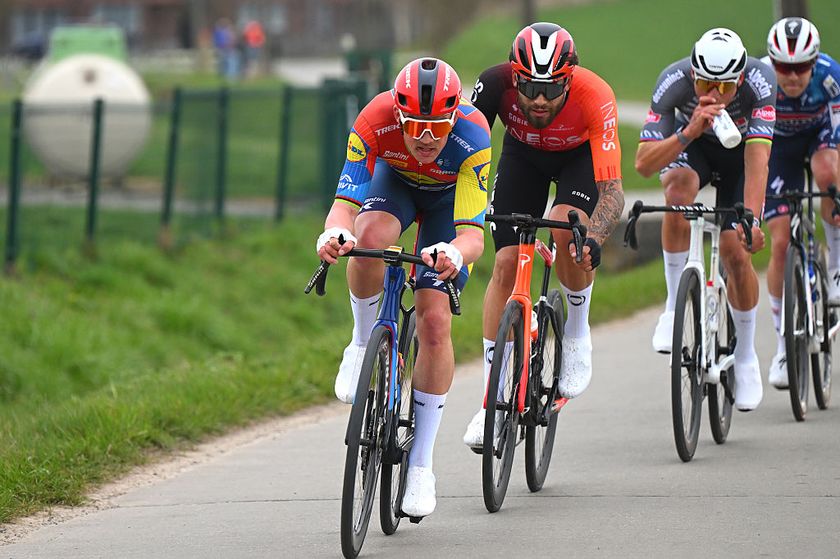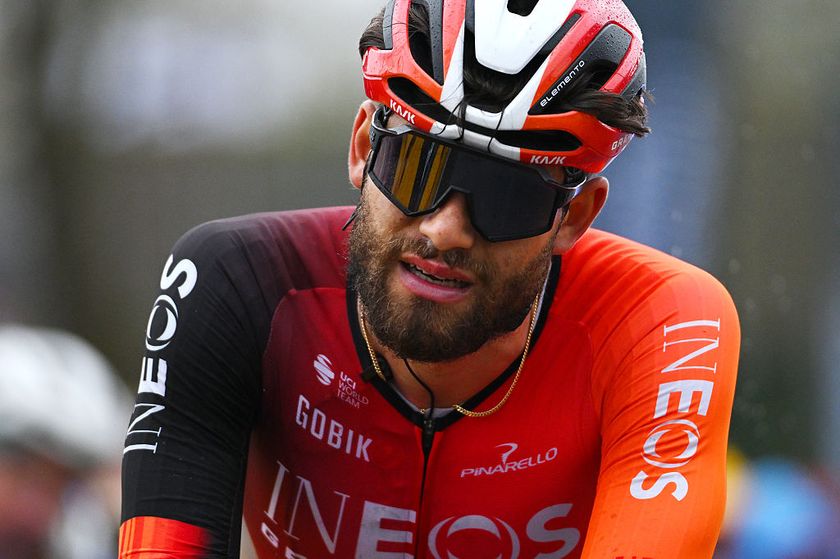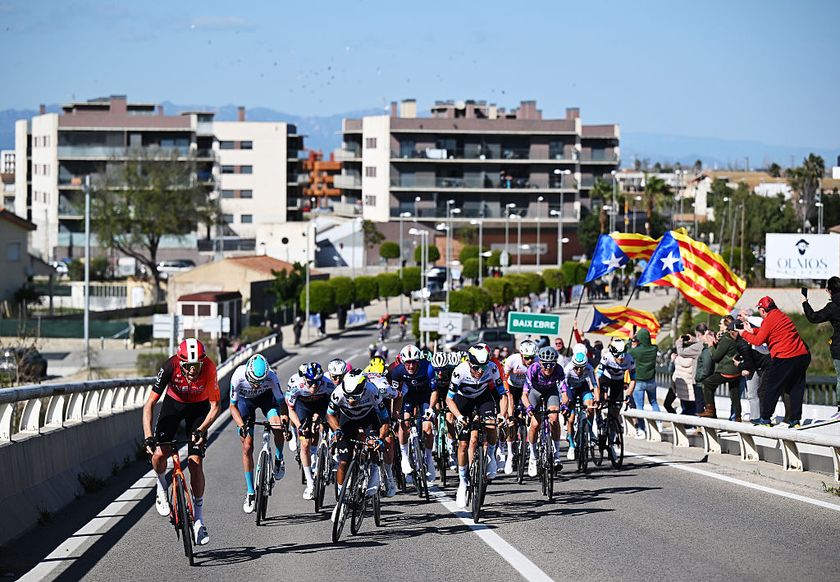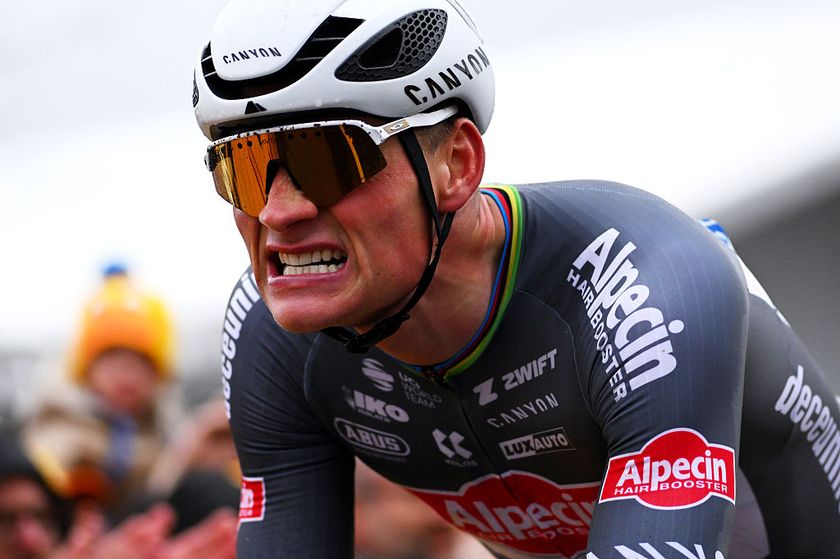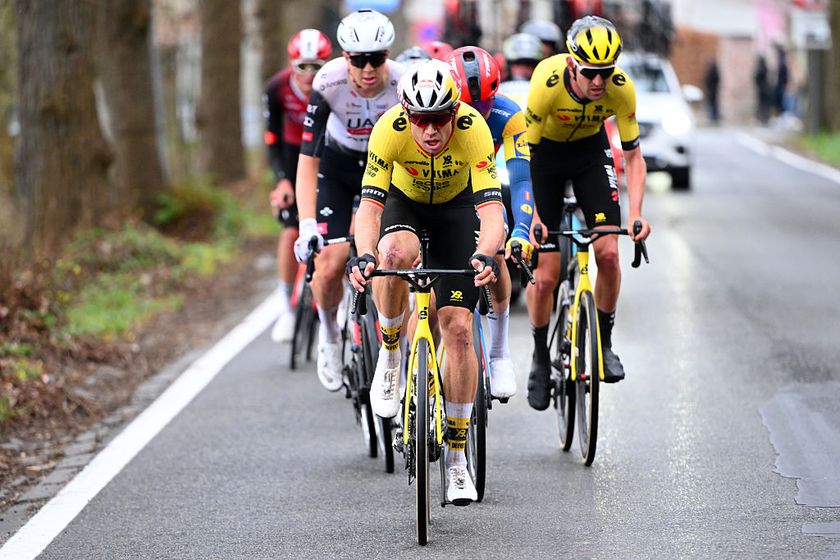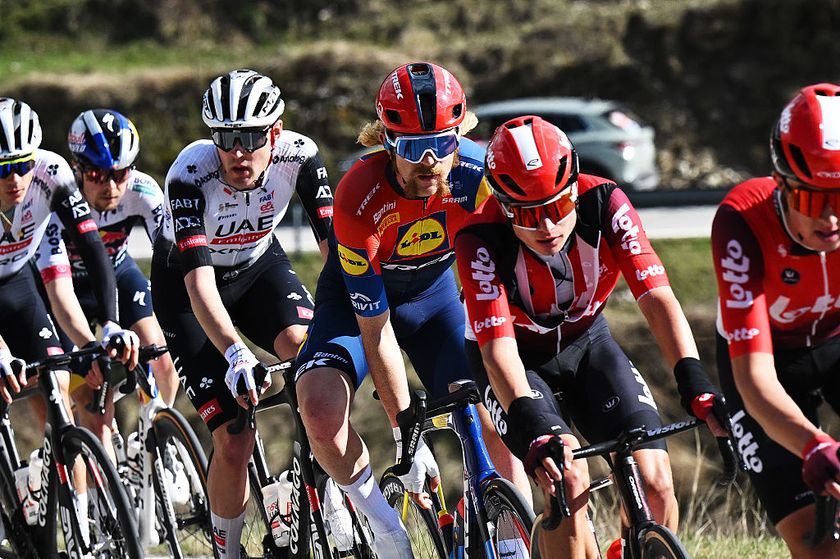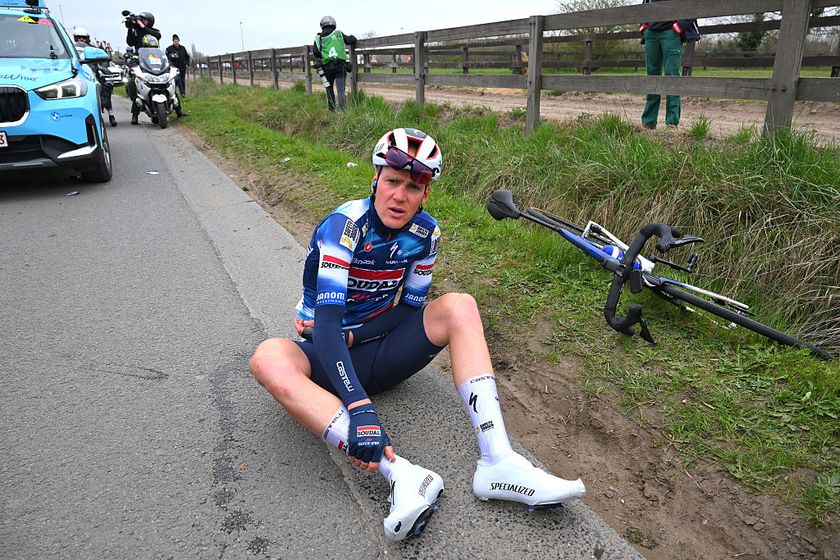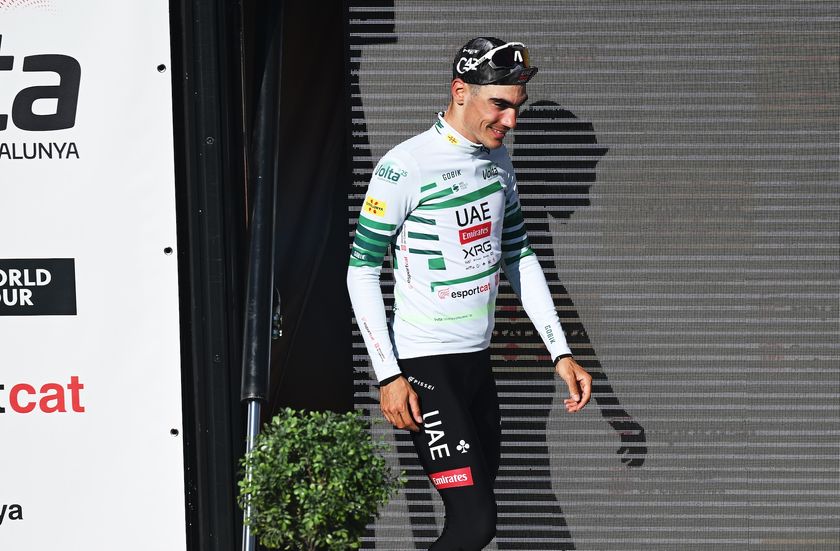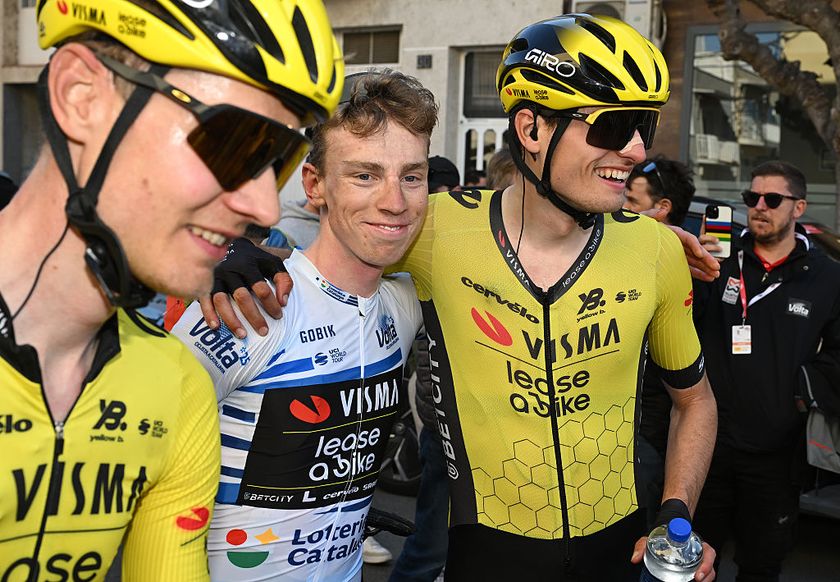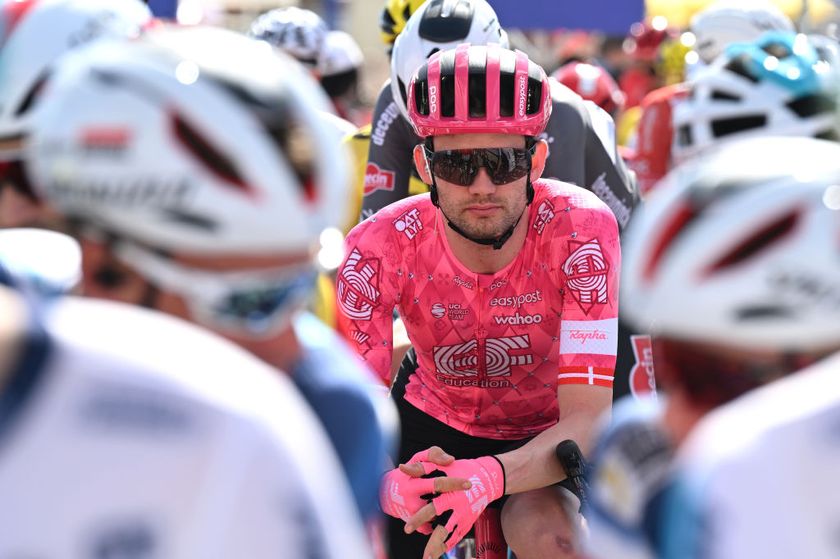Kristoff: Winning Gent-Wevelgem saves my Classics campaign
Norwegian shows invention and strength to claim victory





In a race as unbridled as this edition of Gent-Wevelgem, staying in contention was half the battle. Ordinarily, saving energy would be the byword in a classic of 250 kilometres, but after a windswept slugging match run off at an average speed in excess of 46kph, it was clear that anybody still standing on Menenstraat would be in with a swinger’s chance of landing the decisive blow.
It is four long years since Alexander Kristoff (UAE Team Emirates) held the heavyweight crown in this corner of the world following victory at the Tour of Flanders, but the Norwegian matched ingenuity with raw strength to make sure he was in a position to claim this tumultuous Gent-Wevelgem.
Ahead of the final twin ascent of the Baneberg and Kemmelberg, Kristoff powered his way clear of a peloton that was chasing an elite group of five led by Peter Sagan (Bora-Hansgrohe). The Norwegian had few illusions about bridging the 40-second gap by himself; his aim was to avoid having to suffer the inevitable accelerations on the Kemmelberg from men like Wout van Aert (Jumbo-Visma).
“I anticipated making sure I was there. I was a bit scared because last year I was dropped on the Kemmel and I didn’t want that to happen again,” Kristoff said afterwards. “It was actually a smart move there to anticipate there, to make sure I was in the front because you never know how the race will turn if a few more guys follow Van Aert and Stybar over the climb.”
Kristoff’s attack was snuffed out after the Kemmelberg, but it was enough to ensure that he was among the small peloton of 35 riders that formed to contest a rather muddled sprint in Wevelgem. No one team was sufficiently equipped to provide a coherent lead-out, and, once again, the 31-year-old prioritised staying in contention over trying to save energy.
While pre-race favourite Elia Viviani (Deceuninck-QuickStep) found himself boxed in during the finishing sprint, Kristoff eschewed shelter in favour of the widest possible clearing. If you’re not in, you can’t win. Viviani could only manage 19th, while Kristoff powered to resounding victory ahead of John Degenkolb (Trek-Segafredo) and Oliver Naesen (AG2R La Mondiale).
“I was just trying to be in the correct position and not get boxed in, and then see if I had the legs to win. When I started my sprint, I felt I had good power and when I didn’t see anybody on my side, I was quite confident in the last 100 metres,” said Kristoff. “I didn’t focus on anybody but myself. I didn’t follow any sprinters, I just stayed in position. If you look closely at my sprint, I wasn’t on the wheel of Viviani or somebody like this, I was just focused on myself. I just tried not to get boxed in.”
Get The Leadout Newsletter
The latest race content, interviews, features, reviews and expert buying guides, direct to your inbox!
Gaviria
Kristoff left Katusha for a position as the marquee sprinter at UAE Team Emirates at the beginning of 2017, but despite winning on the Champs-Élysées at the Tour de France, his status was downgraded following the arrival of Fernando Gaviria during the off-season.
This coming July, Kristoff will serve as lead-out man to Gaviria, but even at Gent-Wevelgem, he was designated as back-up while the Colombian was handed the reins of leadership. That hierarchy looked a sound one when Gaviria joined dangermen Sagan, Van Aert and Mathieu van der Poel in an 18-man echelon that formed at the end of the first hour of racing, but he would pay for those efforts when the group was eventually caught later in the afternoon. On the final approach to Wevelgem, Gaviria rode up alongside Kristoff and suggested they switch roles.
“When it came back together, I talked to him and he said he was tired, but I told him everybody was tired because it was a hard race. I said he should just try to get to the finish but he told me he didn’t have the legs so I tried myself,” said Kristoff, who dismissed any suggestion that his Gent-Wevelgem triumph would see any change to the status quo in the months ahead.
“Nah. This is different racing to a Tour de France stage. I know for sure I’ll do lead-outs for him there, you saw already the last few years he’s one of the fastest guys in the pack. We have quite a good relationship, he’s a cool guy. When it’s easier racing, he’s faster than me, but here in Belgium, I know I have a good finish. My finish is more or less the same if it’s super hard or if it’s easy. I don’t push many more watts in training than I did today.”
While Kristoff has never replicated his remarkable spring of 2015, when he lined up at the Tour of Flanders as the consensus favourite and duly dominated the race, he has remained a consistent performer in the Ronde, placing 4th in 2016 and 5th in 2017. Illness ruined his spring a year ago, however, and a subdued showing at Friday’s E3 BinckBank Classic did not augur well for his prospects at this season’s Ronde. The outlook appeared a little rosier on Sunday evening.
“Gent-Wevelgem is not the same as Flanders, for sure,” Kristoff said. “You saw on Friday I lacked a little bit to be with the best, but I hope I can step it up a level for Sunday. I think I’m not the favourite for Flanders but winning today saves my Spring Classics campaign. It’s gone from bad to good. I said I’d be happy if I went on the podium in one of these races. I’m really happy I’ve won one, but I can make it even better if I do well in the next races.”

Barry Ryan was Head of Features at Cyclingnews. He has covered professional cycling since 2010, reporting from the Tour de France, Giro d’Italia and events from Argentina to Japan. His writing has appeared in The Independent, Procycling and Cycling Plus. He is the author of The Ascent: Sean Kelly, Stephen Roche and the Rise of Irish Cycling’s Golden Generation, published by Gill Books.
